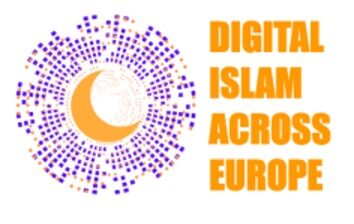Frederic Volpi (Project Leader)

University of Edinburgh, Alwaleed Centre for the Study of Islam in the Contemporary World.

Frederic Volpi is the Chair, Politics of the Muslim World, Department of Islamic and Middle Eastern Studies and Director, Prince Alwaleed Bin Talal Centre for the Study of Islam in the Contemporary World. His research engages with the contemporary issues of democratization and Islamism in the Muslim world, with a particular focus on North Africa.
He earned his PhD from the University of Cambridge in 2000. Before coming to Edinburgh in 2018, he was in the School of International Relations at the University of St Andrews. He also taught and researched at Sussex University, Bristol University, and Sciences Po., Paris.
Gary Bunt (Co-I)
![]()
University of Wales Trinity Saint David

Gary R. Bunt is the Professor of Islamic Studies at the University of Wales Trinity Saint David. His research area focuses on Islam, Muslims and the internet. His most recent book is Islamic Algorithms: Online Influence in the Muslim Metaverse (London & New York: Bloomsbury, 2024). Related publications include Hashtag Islam: How Cyber-Islamic Environments Are Transforming Religious Authority (University of North Carolina Press, 2018), iMuslims: Rewiring the House of Islam (University of North Carolina Press, 2009), Islam in the Digital Age: E-Jihad, Online Fatwas and Cyber Islamic Environments (Pluto Press, 2003) and Virtually Islamic: Computer-Mediated Communication and Cyber-Islamic Environments (University of Wales Press, 2000). Prof. Bunt is a Co-Investigator for the European Online Islam project and the Principal Investigator for the Digital British Islam project (funded by the Economic and Social Research Council). More information: virtuallyislamic.com
Sariya Cheruvallil-Contractor (Co-I)
![]()
Coventry University

Sariya Cheruvallil-Contractor is Professor and Research Group Lead for Faith and Peaceful Relations at the Centre for Trust, Peace and Social Relations, Coventry University, UK. She is Chair (2020-2026) of the Muslims in Britain Research Network (MBRN) and is Series Editor of the Review of Social and Scientific Study of Religion. Her research emphasises collaborative methodologies that work with and for research participants. As a feminist sociologist of religion, she has a keen interest and appreciation of the power dynamics within knowledge production and the implications of the processes and systems of knowledge on society as a whole. Her portfolio of research aims to hear lesser-heard sections in society including British Muslim Communities, religious women and vulnerable children. Her publications include Muslim Women in Britain: Demystifying the Muslimah (Routledge 2012), Religion or Belief, Discrimination and Equality: Britain in Global Contexts (Bloomsbury 2013), Islamic Education in Britain: New Pluralist Paradigms (Bloomsbury 2015), Digital Methodologies in the Sociology of Religion (Bloomsbury 2015), Islam on Campus: Contested Identities and the Cultures of Higher Education (OUP 2020), several journal articles and book chapters.
Anna Grasso (Postdoc)
![]()
University of Wales Trinity Saint David

Anna Grasso earned her PhD from SciencesPo Aix-en-Provence in January 2018. Her research in Political Science focused on understanding the evolution of Islam’s institutional and political place in Tunisia through the figure of clerics who mobilised following the “Jasmine” revolution (2011-2017). She also carried out fieldwork in France (in mosques and religious associations) and interviews with male and female Muslim representatives focusing on issues tied to religious authority, religion and public policy, religion and gender (2016-2022). Anna is currently a Post-Doctoral researcher for the DigitIslam project, working alongside Prof. Gary R. Bunt on the overall web-archiving process, and with Prof. Sariya Cheruvallil-Contractor on UK-focused quantitative and qualitative data collection and analysis.
